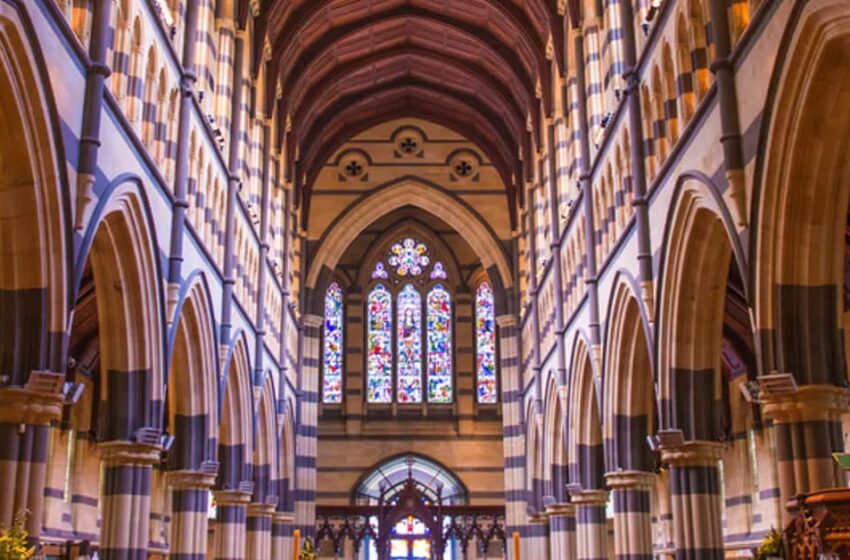The Anglican Church’s bold stand – A model for leadership and institutional integrity

The recent decision by the Church of Nigeria, Anglican Communion, to ban politicians from speaking on church podiums represents more than just an ecclesiastical policy shift—it exemplifies principled leadership in action. Under the guidance of Most Reverend Dr. Henry Ndukuba, the Anglican Church has demonstrated what it means to model the way forward when institutional integrity is at stake.
This directive, formalized in a memo signed by Most Reverend Dr. Henry Ndukuba and announced during the Episcopal Consultation in the Diocese of Nike, Enugu, encompasses comprehensive guidelines that extend beyond merely restricting podium access. The Church has also prohibited the public praising or glorifying of political figures in ways that could damage the Church’s reputation, while explicitly stating that “politicians and government officials must be told clearly that the Church is not a stage for promoting partisan opinions or political propaganda.” Significantly, the memo emphasizes that “no guest should be allowed to speak from the lectern, which has been set aside for the reading of God’s Word,” underscoring the sacred nature of the pulpit while clarifying that politicians remain welcome to attend services and church programs. The Church stressed that it must “diligently avoid speeches, conduct, or events that may incite division or foster political bias within the body of Christ,” while reaffirming its commitment to being “the light of the world and the salt of the earth” as outlined in Matthew 5:13-14.
Recent incidents, including controversial rhetoric from politicians like Nyesom Wike, may have served as catalysts for this decision. Such episodes highlight how political figures can overstep bounds, transforming sacred spaces into platforms for what can only be described as kakistocratic conduct—governance by the least suitable or most unscrupulous. The Church’s response sends a clear message: houses of worship will not be venues for political grandstanding or partisan messaging.
However, this directive should not be viewed as the Church retreating from societal engagement. Rather, it presents an opportunity for more structured and purposeful involvement in Nigeria’s political discourse. Following the biblical precedent in Acts 6:1-6, where the early Church established organized structures to handle specific responsibilities, the Anglican Church could consider creating a dedicated department—perhaps focused on Public Policy, Political Participation, or Good Governance—to thoughtfully engage with political matters.
Such an approach would address a critical concern: ensuring that congregations are not rendered docile in a nation desperately seeking change and divine solutions to its myriad challenges. Nigeria’s complex political landscape requires informed Christian participation, not passive withdrawal from civic responsibility.
It’s important to acknowledge the historical context that led to churches opening their pulpits to political discourse. Faced with legitimate concerns about religious balance in national leadership, particularly regarding Muslim-Muslim political tickets, many churches felt compelled to provide platforms for political discussion. While these decisions were understandable given the circumstances, they came with consequences—including the very incidents that necessitated the current policy change.
The Anglican Church’s latest decision represents a return to the wisdom inherent in the separation of Church and State, while maintaining the Church’s prophetic voice in society. This balance is crucial: the Church must speak truth to power without becoming a mere extension of political machinery.
This bold step by the Anglican Communion models leadership for other religious institutions grappling with similar challenges. It demonstrates that maintaining institutional integrity doesn’t require abandoning social responsibility—it requires thoughtful, structured engagement that preserves the sacred while addressing the secular needs of society.
As Nigeria continues to navigate its complex political terrain, the Anglican Church’s directive offers a template for how religious institutions can maintain their divine mission while remaining relevant to societal transformation. This is leadership that models the way—principled, purposeful, and protective of both spiritual and civic values.
The Church of Nigeria, Anglican Communion, has charted a course that other institutions would do well to follow. In choosing integrity over expedience, they have reminded us all that true leadership sometimes requires difficult decisions that serve the greater good rather than immediate convenience.
About Writer:
Chimdi Chukwukere holds a Masters in Diplomacy and International Relations from Seton Hall University, United States. He is a First Class graduate of History and International Relations from Paul Univesity, Awka, Nigeria. He is a Company Director at Policy Shapers, an organization focused on empowering youth in public policy, with emphasis on reforms and Nigerian initiatives. Expertise: public policy, youth engagement, and advocacy.

